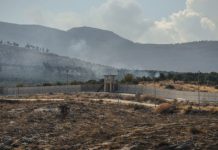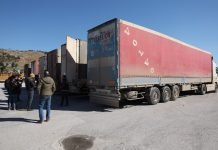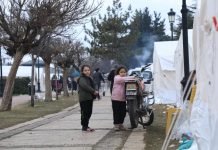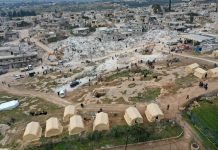
Living conditions remain dire in northwest Syria three months after massive earthquakes hit Turkey and Syria, United Nations aid officials told The Associated Press (AP) on Wednesday.
According to David Carden, the UN’s deputy regional humanitarian coordinator for the Syria crisis, some 2,000 trucks have crossed the border from Turkey providing assistance such as shelter, food, medical supplies and other services.
A 7.8-magnitude earthquake that struck near the Turkish city of Gaziantep – home to around 2 million people and on the border with Syria – as people were sleeping on Monday was followed by dozens of aftershocks, including a 7.5-magnitude temblor that jolted the region in the middle of search and rescue efforts the same day.
The Syrian leader, Bashar al-Assad, agreed to open two border crossing points for three months to allow in a greater volume of emergency aid for victims of the earthquakes.
The three-month period expires in mid-May, and it is still not clear if the Syrian government will allow aid to flow in the future, according to the AP.
Nearly 9 million people have been affected across the country. The damage is worse in the northwest of Syria, involving 4.2 million people in Aleppo along with 3 million in Idlib. More than 7,400 buildings have been completely or partially destroyed.
“We have progressed since the early days but there is still more to be done one,” Carden said, citing funding as one of the issues, AP reported.
The Coordination of Humanitarian Affairs (OCHA) said in a statement in February that UN humanitarian agencies would need $397.6 million in funding over the following three months to respond to the most pressing humanitarian needs of 4.9 million people in Syria who have been affected by the devastating earthquakes.
The UN launched a $400 million funding appeal on Tuesday to support millions of people affected by the earthquakes for the next three months. The appeal aims to support 4.9 million people with the provision of essential shelter, health, food, water, sanitation, non-food items, education, nutrition and protection services.














